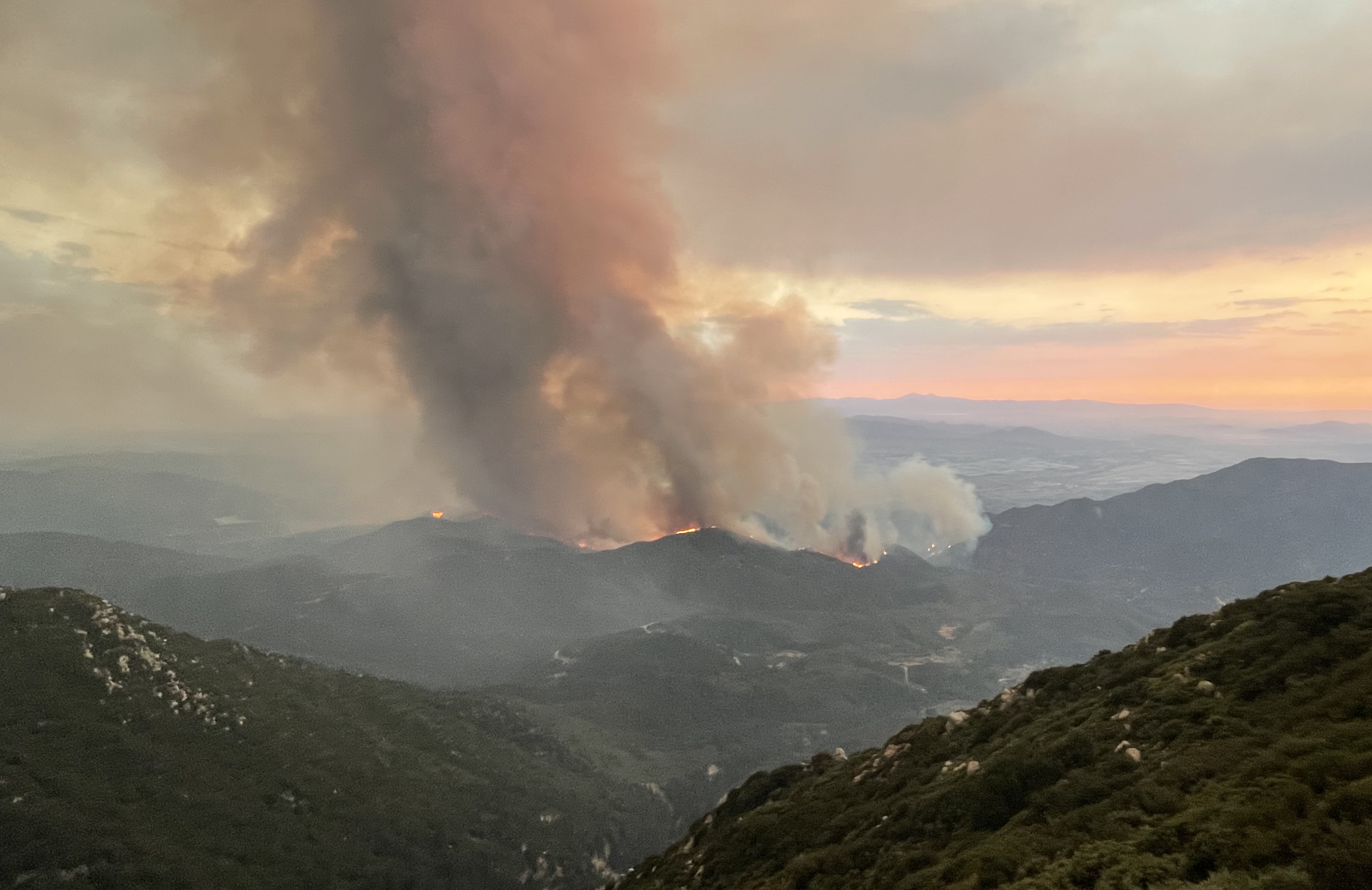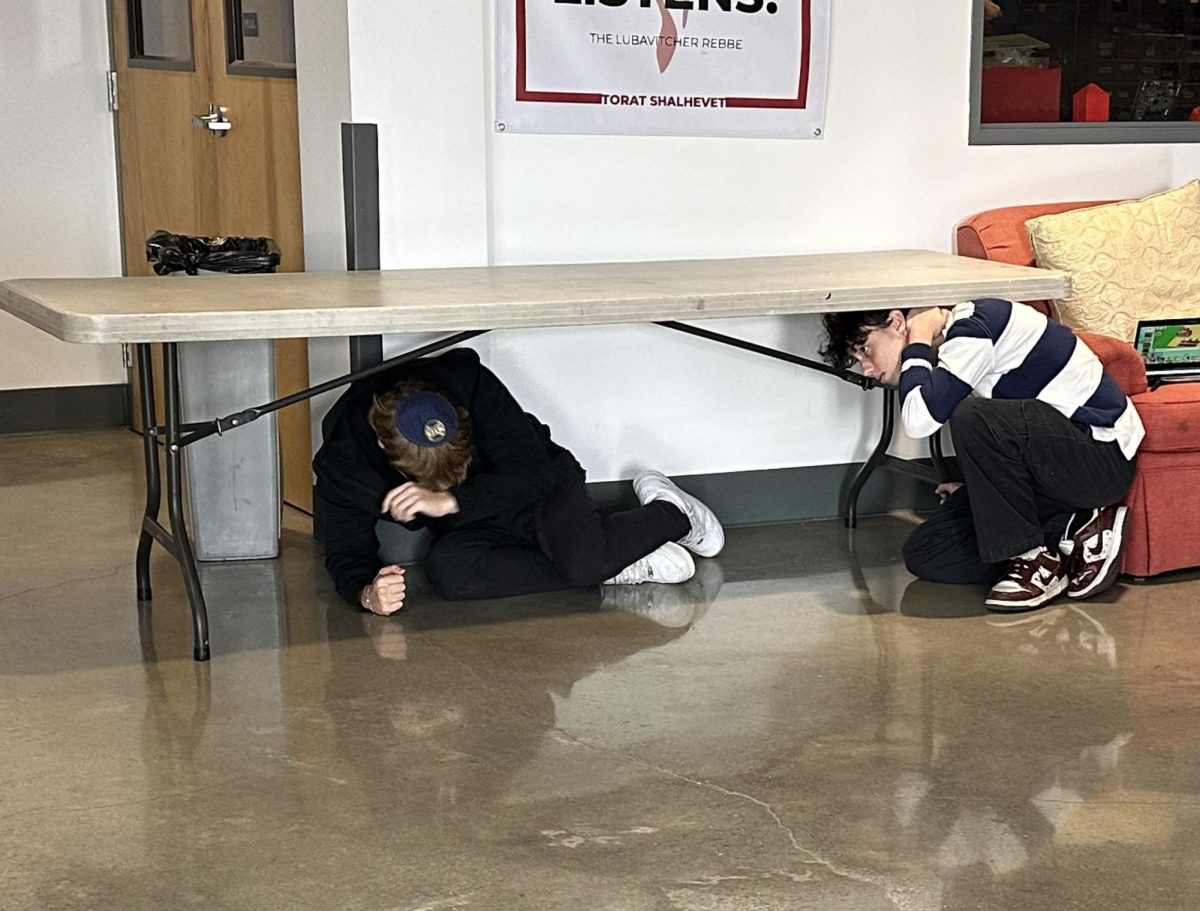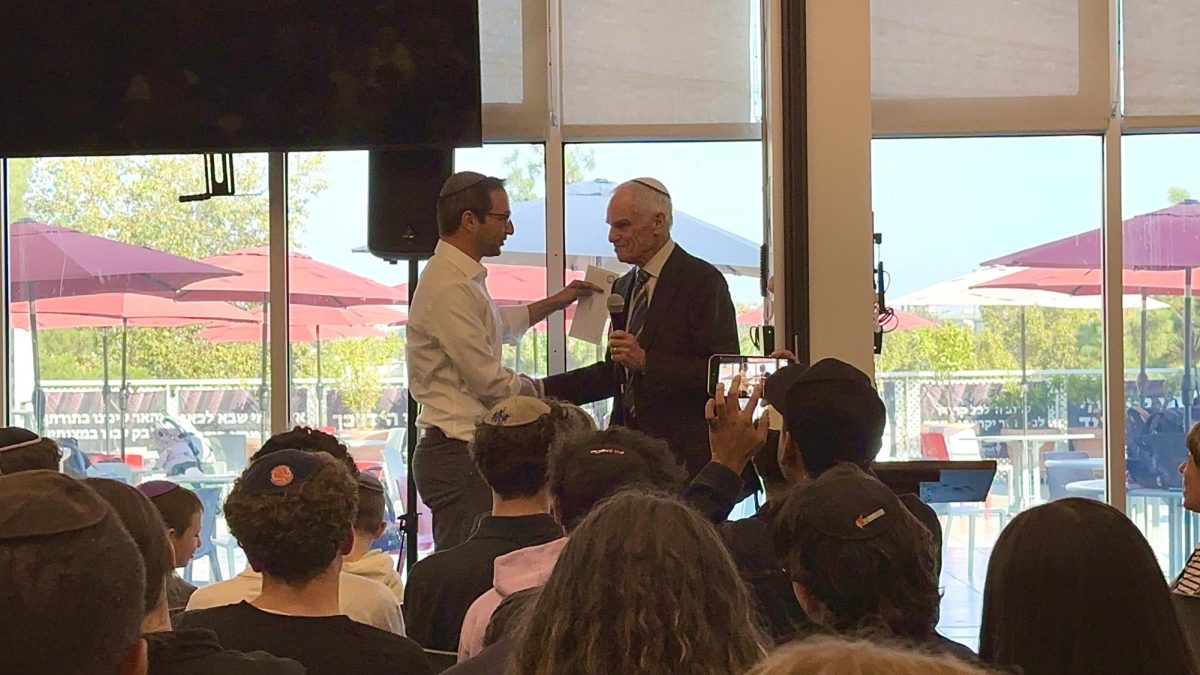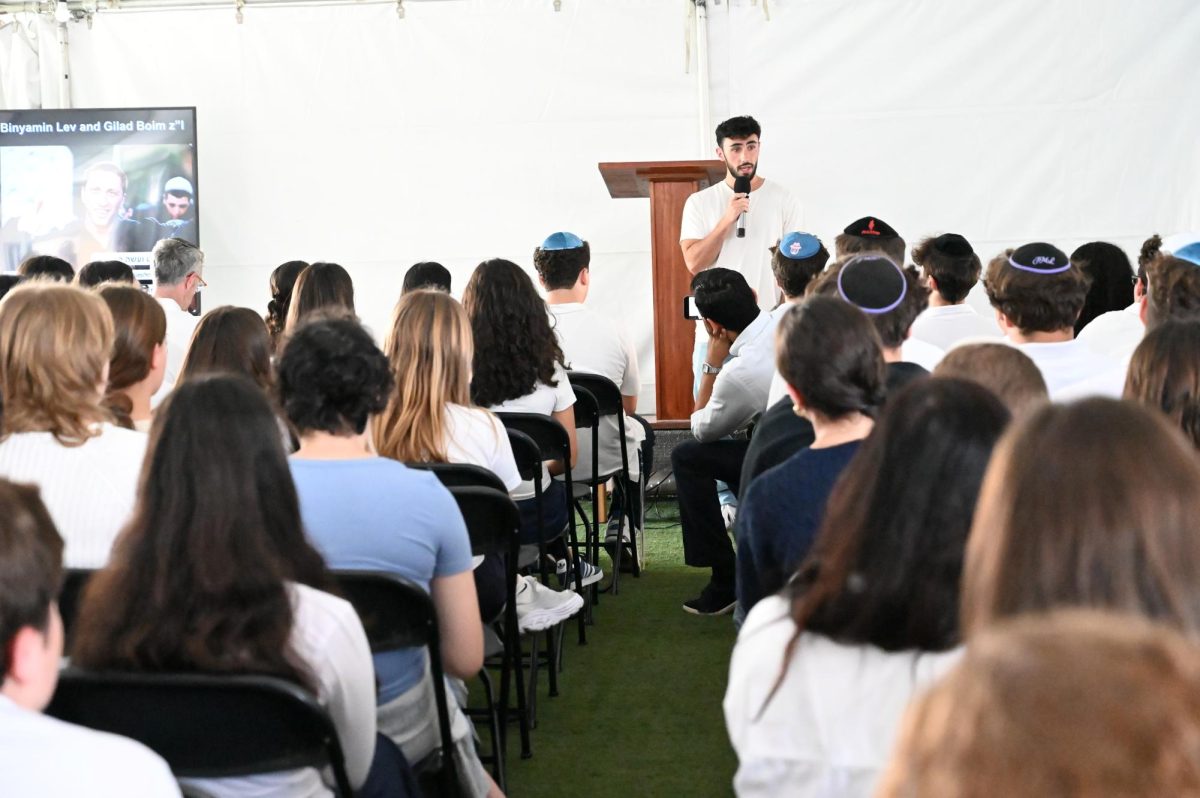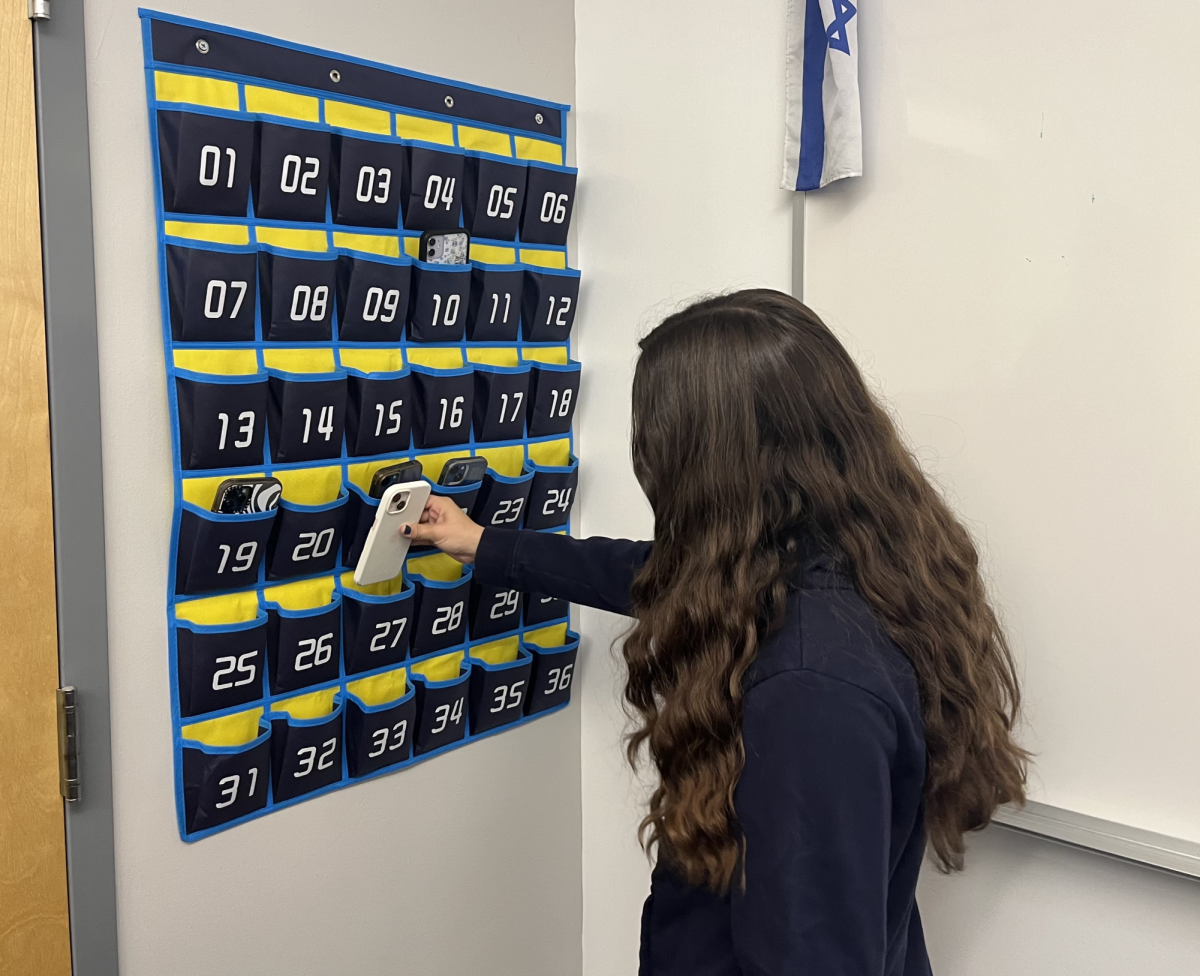Friday morning of the Freshman-Senior Shabbaton, faculty were unaware of the wildfire that was spreading towards Running Springs, where Moshava Alevy, the site of the Shabbaton, is located.
As teachers and students drove up the mountain, they saw a fire in the distance. After arriving at the campsite, members of the administration reached out to the Running Springs Fire Department, who said they were able to contain the fire and that they would keep the faculty updated in case the situation changed. But the firefighters said they were safe and their weekend could continue.
That afternoon, before Shabbat, administration formed a contingency plan informed by halacha in case an evacuation became necessary.
Throughout Friday afternoon and after nightfall, the Fire Department kept faculty informed about the status of the fire by sharing information via their on-the-ground contact at Moshava and two non-Jewish administrators. During that time period, they told administrators it was safe to continue with the Shabbaton.
By Shabbat morning, the Running Springs Fire Marshal paid a visit to the campsite and told the teachers the fire had increased in size overnight and the school had to evacuate. Because it was a matter of pikuach nefesh, saving lives, students and faculty boarded buses and cars and drove back to Shalhevet on Shabbat afternoon.
“The danger was not imminent, but the early afternoon evacuation was unavoidable and necessary,” Head of School Rabbi David Block wrote in a letter to parents Saturday night. “Halacha [Jewish law] not only allows but requires chilul Shabbos (violating Shabbat) when there’s even a slight chance of life-threatening danger (safek pikuach nefesh).
“As such, that which we had to do ought not be considered a violation of Shabbos, but the fulfillment of the tremendous mitzvah of ve’nishmartem me’od le’nafshoteichem, scrupulously protecting our lives,” Rabbi Block wrote.
When they arrived at Moshava the sky was orange, and they could smell smoke, students said.
“It was like it was snowing with ash,” senior Ariel Shapiro said. “The sky was kind of orange and red, but it wasn’t horrible – you could still see the sky. It was just kind of eerie.”
Students had not expected a Shabbat afternoon evacuation, but when Rabbi Block announced after shacharit, Shabbat morning davening, that they needed to leave, everyone remained calm, Ariel said.
Freshman Romy Burg said seeing the fires from the campsite and having poor air quality was “weird and scary,” but she never felt unsafe and knew the teachers had it under control once they announced they were evacuating.
Freshman Benny Portnoy said there was ash on his clothes and on the floor.
“I thought we were just gonna stay and it would be slightly inconvenient,” Benny said, “because it smelled like smoke and smoke was everywhere.”
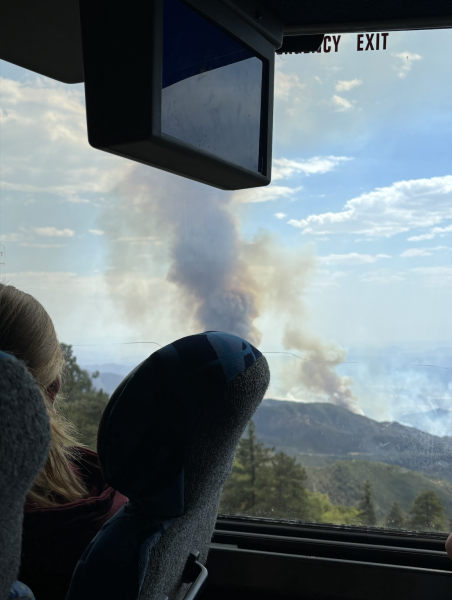
After consulting with halachic experts in advance of Shabbat, Shalhevet leadership decided that, as part of the contingency plan, as soon as students and faculty left Moshava’s eruv – halachic border – they should go to an area within the Los Angeles eruv. So the buses and cars left the campsite around noon Shabbat morning, and arrived at Shalhevet about two hours later to continue the Shabbaton.
Dr. Jonny Ravenshenas, Dean of Student Life, said after he drove back to Shalhevet he – along with the other teachers who had to drive back in their cars because there was not enough room on the bus – could not even close his car door after exiting because “Shabbat immediately started again. That’s it, you’re back in Shabbat mode.”
On typical Shabbatons, Principal Daniel Weslow and Mr. Tushar Dwivedi, Director of Student Engagement – both who are not Jewish – go back home early Saturday morning. But this time, after being notified by the fire department that Shalhevet would have to evacuate the campsite, Mr. Weslow left a few hours before the rest of the group to set up the Shalhevet campus for their arrival.
Once they arrived at school, they finished davening, had regular afternoon activities, and slow shira and havdalah – singing and saying a prayer that marks the end of Shabbat.
Under ordinary circumstances, driving on Shabbat is considered a violation of halacha.
“I love the way Rabbi Block framed it,” Dr. Ravanshenas said. “Like we kept Shabbat by breaking Shabbat – meaning the halacha is that if you’re in imminent danger, that comes first no matter what. You cannot erode it, you have to make sure you’re alive.”
But even though pikuach nefesh allowed students and teachers to board vehicles and drive away on Shabbat, all other halachic restrictions were still in effect.
As they were packing their bags at Moshava Shabbat morning, students and teachers could not move or indirectly carry any muktzah items, things that are not used on Shabbat. This includes objects like cellphones or hair straighteners, which many students brought for the weekend.
Students and teachers packed all of their non-muktzah items, and Mr. Dwivedi went around to the rooms and collected anything that was muktzah to take back to Shalhevet.
“For every single rabbi, turning on every single car,” Mr. Dwivedi said, explaining one of the actions he took to help the rabbis evade more Shabbat violations than were strictly necessary. “Yagil [Mashgiach Ruchani Rabbi Yagil Tsaidi] sat down in his car, and I was adjusting his seat for him because he didn’t want to do anything extra. Opening doors, closing trunks, you know, that stuff.”
On Friday, faculty informed parents that there was a nearby fire, but that they were in touch with the local fire department and everyone was safe. Once Shabbat started, parents could not continue to be updated, and when the students and faculty evacuated the next day, parents did not know until after Shabbat.
“When they sent out the text after Shabbos,” Kelly Berg – mother of freshmen triplets Dalya, Jack and Hana – said, “obviously everyone was fine and everyone was at Shalhevet and it was all over and done with, so it just kind of made us laugh.”
Some freshmen, like Benny, were upset about missing out on part of the weekend.
“It was just like a waste of time,” Benny said. “And the Shabbaton isn’t long as it’s only a day, like a day and a half, so losing like three hours of it was upsetting.”
Senior Olivia Petlak felt that the evacuation made the whole weekend more exciting.
“I think it was definitely out of the ordinary and gave us a really good story to tell,” Olivia said.
Ariel agreed with Olivia and felt his experience was still meaningful.
“I think the highlight for me was the slow shira,” Ariel said, “which felt really powerful. The singing after everything we went through with the evacuating and the fire, still continuing the singing was really nice for me.
“Also, the freshmen – they were just really fun, so it was nice connecting with them.”
Romy was happy it was not an ordinary Shabbaton, and she was able to be part of a unique experience.
“For us, it’s like we had an adventure,” she said.
Features and Opinion Editor Eliana Vahedifar contributed to this story.



